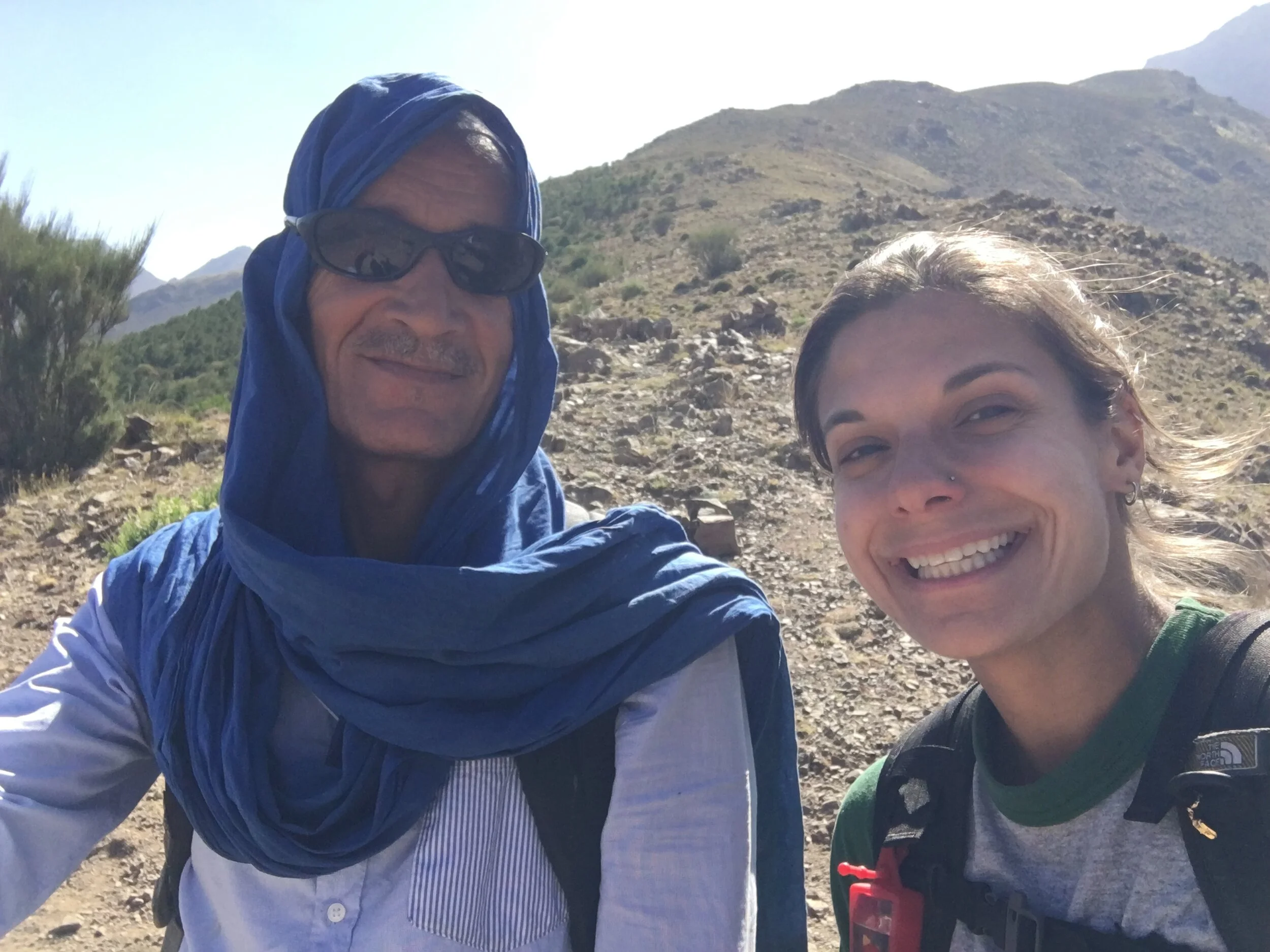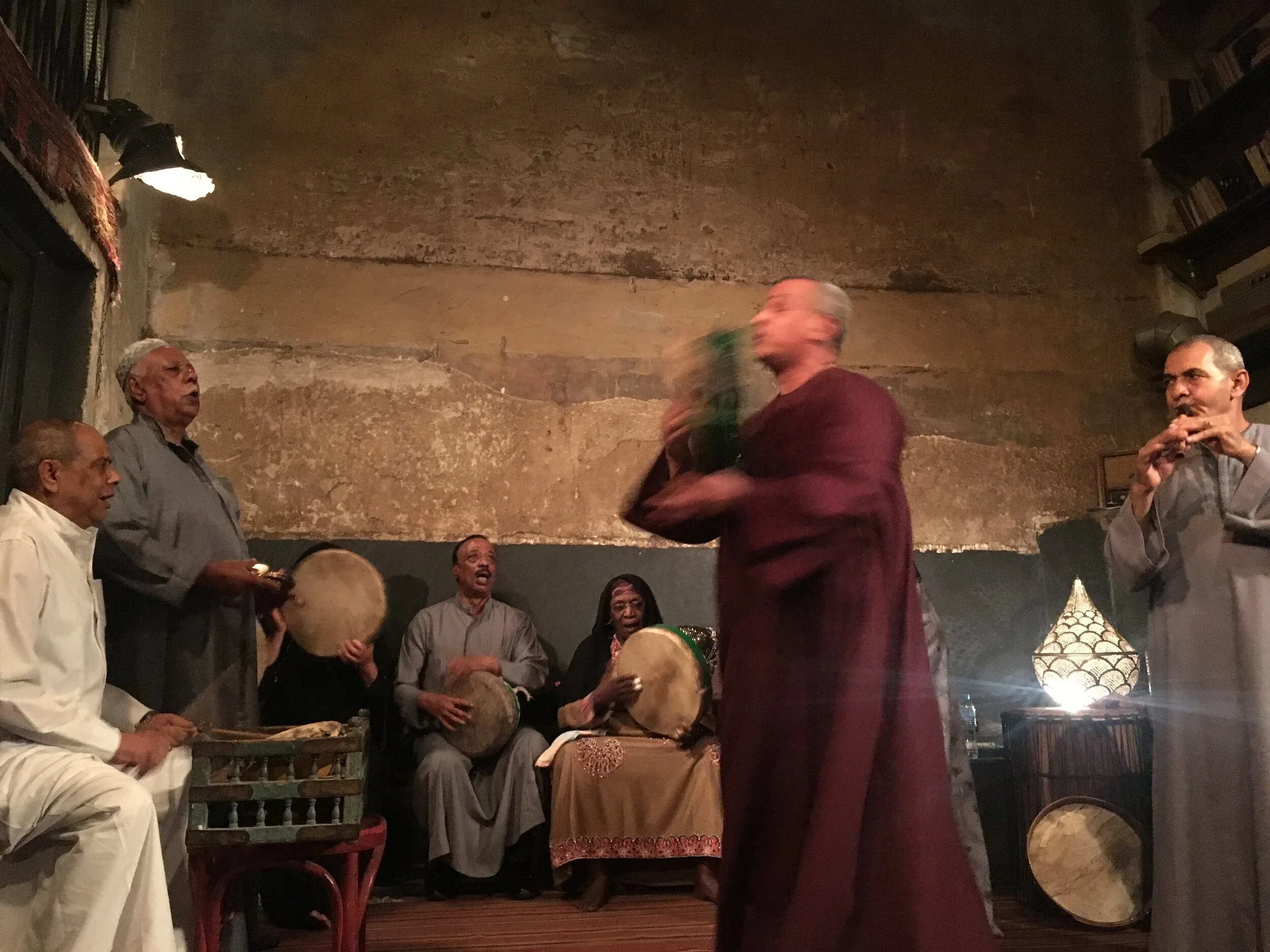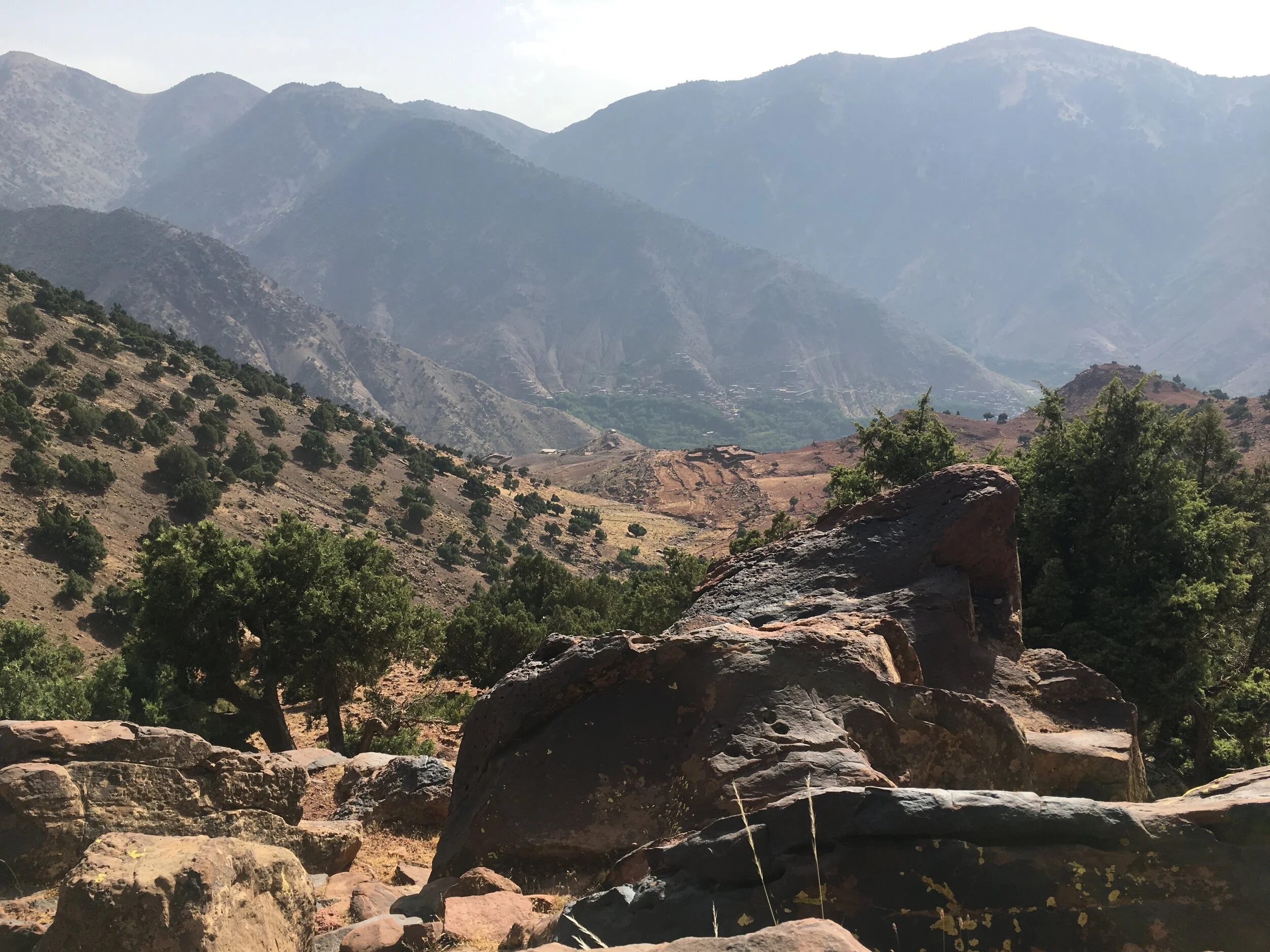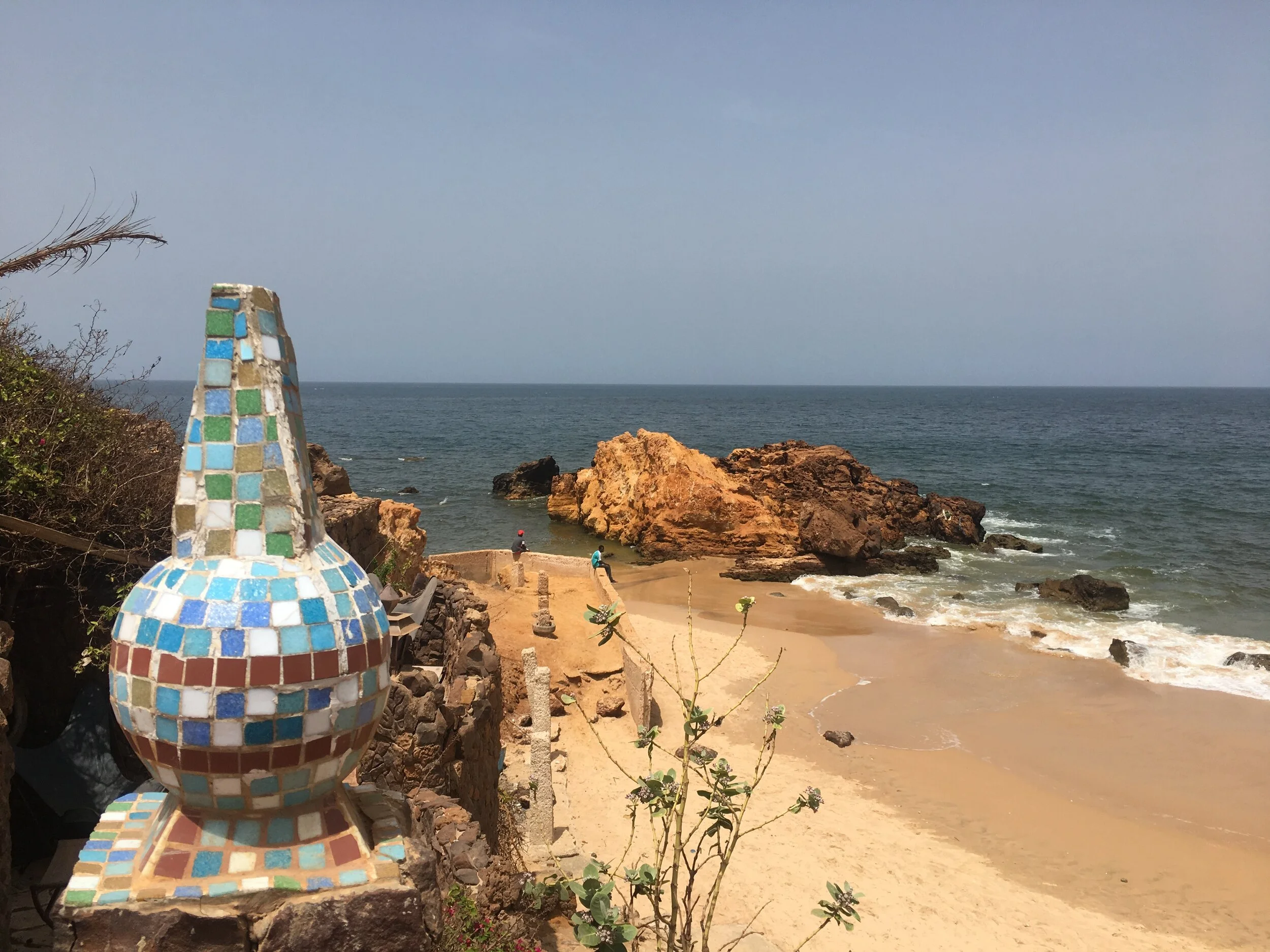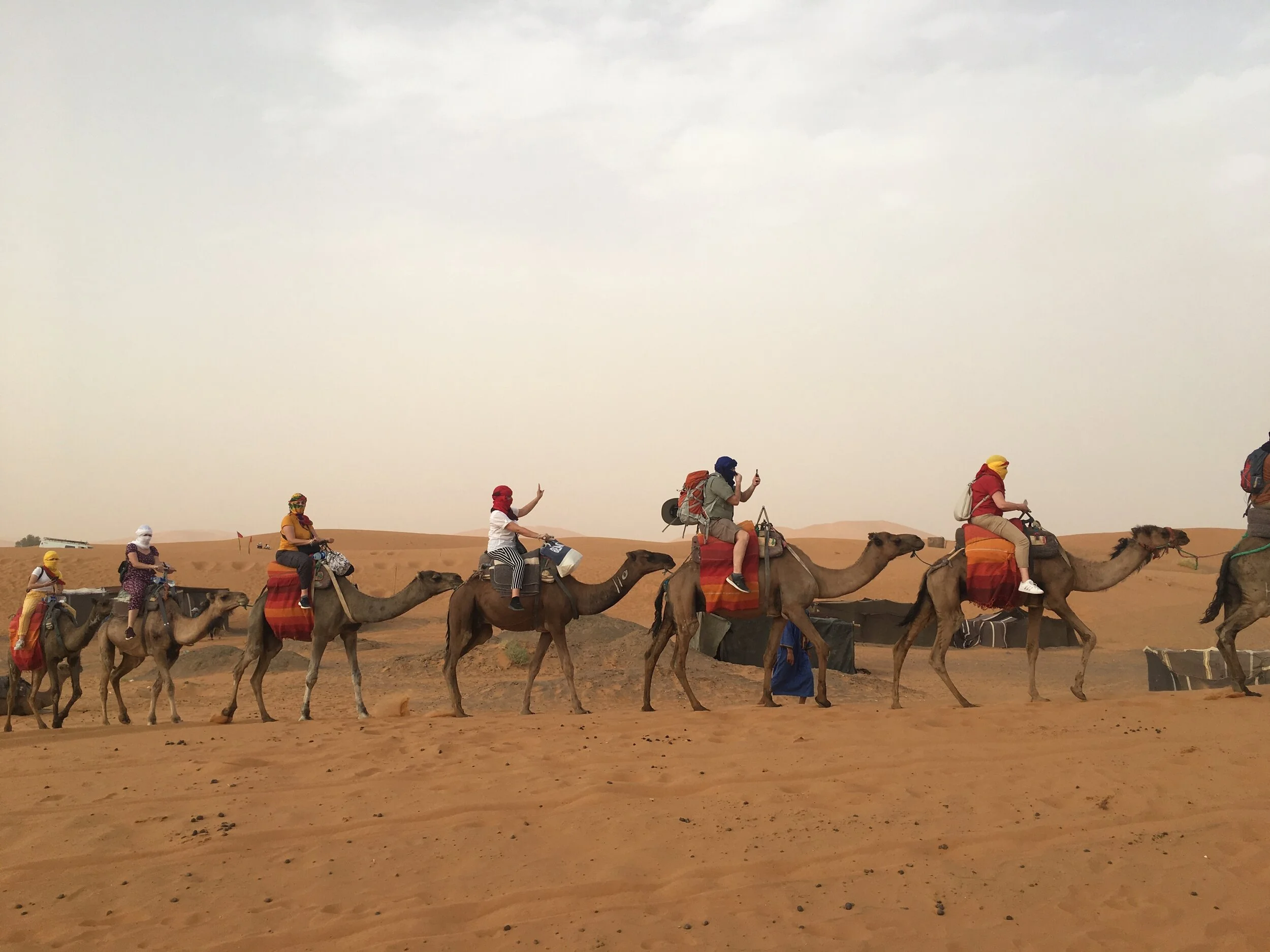History of a Trekking Guide
Our trekking guide Ali never went to school as is the case for many Berber children. He learned to read and write Arabic by attending morning and evening classes at the Mosque. His father was a driver and his mother, like many Moroccan women, was a homemaker taking care of the 7 children. Ali is the second oldest and went to Marakesh for a trip with his father to visit his uncle when he was 13. His cousin was studying French from a primer and he immediately felt a desire to study himself. For the next few days he followed her lessons, looked at her books and asked her about school. She told him he could buy his own book in the market for 2 dihram. He asked his father for some money but didn’t tell him want it was for. He went to the market and bought a French, German and English primer and began to teach himself.
Ali (center) chats with a local (left) as we hike up the mountains.
The following year Ali’s father died and he and his brother left the countryside for Marrakech to look for work. Ali started as a dishwasher but knew if he could improve his language skills, he could make more money working the front of the house as a waiter speaking to foreigners. He got another job at a shop calling out to tourists in several languages as they passed by trying to get them to look in the shop. He opened the shop in the morning, sprinkled water on the ground to keep the dusk down, dusted the merchandise and was given two hours in the hottest part of the day for lunch.
Ali wore a blue turban the whole time we hiked.
Instead of going home or sleeping, Ali spent his lunch hours walking to the bus station to meet the bus from Agadir that came in around noon. He would practice his new languages with the tourist and offer to show them around the old Medina for tips. He learned from them what western tourists like, how to speak to them and interact with them and he earned a bit of money.
I like Ali. He’s a slight but strong man. I imagine he’s around 50 years old with his salt and pepper hair and bad teeth. He has two teenage boys 15 and 17 and a daughter who’s 6. He smokes but always steps away to do it. His English and guiding abilities are unparalleled. He’s the best guide we’ve had either in Morocco or Senegal. He tell us unprovoked about the people, architecture, plants and customs of the Berber. He’s warm and funny and sincere. He seems to know everyone in every village and tells me he’s been guiding longer than I’ve been alive. “The mountains are in my blood.”
Ali knows every trail, peak and valley in the mountains and is happy to share his vast knowledge.
It’s hard for me to imagine Ali as a young hustler obnoxiously calling for tourists to “take a look in my shop, I make you good price.” Or hassling road weary travelers fresh off the bus, “I take you to your riad, show you the Medina, you pay what you like.” These types of suspicious young men who hound me for my business are what I like the least about Morocco. The idea that they are practicing their English and that they have aspirations for more skills and a better job hadn’t occurred to me until Ali told his story.
Ali’s first experience leading a trekking expedition happened innocently enough when he invited two German backpackers to visit his home village for a week. They stocked up on supplies of tea and bread and sugar and flour and Ali lead them through the mountains. They slept in his family home and he introduced them to the neighbors. The Germans loved the nature, the quiet away from the cities and the free flowing kif or marijuana that was available in the mountains. They suggested Ali start a trekking business.
Ali likes the mountains as much as I do. We give the High Atlas a big thumbs up.
Ali liked to hang around in cafes that westerners frequented in Marrakech. He send and received post cards from the westerners he met and the cafes were good places to find people who would read and transcribe his post cards for him. It was at a cafe that Ali met the Scottish adventurer Hamish Brown. Ali would go on to lead Hamish through the mountains of Morocco as Hamish developed Atlas Mountains Information Services, took photos, documented the landscape and promoted tourism in Morocco. Ali helped coordinate the 90-day 1400km trek across Morocco which no one had ever attempted. Ali coordinated a visit for Mick Jagger when he wanted to learn about Berber music. He hosted mountaineering clubs and with Hamish’s help eventually received an official guide’s license even though he had never been to school.
Ali wore button up shirts and jeans every day even in the heat.
Ali’s quiet determination, tirelessness (he trekked in jeans and rarely seemed out of breath or tired) and preparedness with candied nuts, a water source, and communication with our cook and accommodations made me feel like I was in the most capable hands as I navigated goat tracks in 90+ degree heat (30º+ C) in the High Atlas Mountains.
